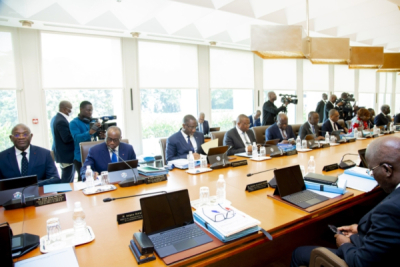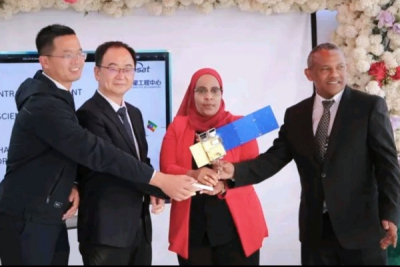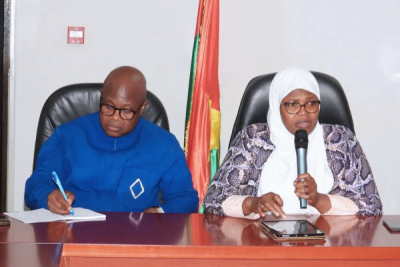Beninese authorities have made digital technology a key pillar of the country's socioeconomic development. The government has recently begun searching for an expert to strengthen the development environment for digital public services.
The Beninese government aims to leverage Starlink’s space technology to improve Internet access in poorly covered areas and strengthen digital inclusion. This issue was one of three areas of cooperation discussed on Wednesday, February 5, during a meeting between Romuald Wadagni (photo, center), Minister of State for Economy and Finance, and representatives of U.S. company SpaceX, which operates the Starlink satellite Internet service.
Discussions also focused on developing innovative digital solutions for e-education and e-health—key drivers of social transformation—as well as enhancing connectivity for more effective border surveillance. “Digital inclusion is a key tool for addressing tomorrow’s challenges. This partnership illustrates our commitment to modernizing the country and reducing the digital divide for more inclusive and sustainable development,” said Wadagni.
This initiative aligns with the government’s vision of making “Benin the digital hub of West Africa” and using digital transformation as a key lever to accelerate economic growth. However, telecom adoption, particularly Internet use, remains limited.
According to the Regulatory Authority for Electronic Communications and Post Office (ARCEP), Benin had 8.5 million unique mobile subscribers, with a penetration rate of 67%. ARCEP estimates that by the end of 2023, the country had 7.0 million unique Internet users, representing 55.4% of the total population. The GSMA, the global association of mobile operators, reported that 3.8 million Beninese regularly accessed the Internet via mobile phones in 2023, accounting for 28% of the population.
Bridging this digital divide offers numerous benefits for the population. “The adoption of digital technologies opens new avenues for development, whether by increasing the added value of existing agricultural resources, facilitating access to global value chains, improving education and healthcare, reducing transaction costs, or enhancing the efficiency, transparency, and governance of government services for citizens and businesses,” the GSMA stated in its report “Driving Digital Transformation of the Economy in Benin: Opportunities, Policy Reforms, and the Role of Mobile”.
While Starlink launched commercial operations in Benin at the end of 2023, discussions with the government are still preliminary. No agreement has been signed or announced, and it is unclear how residents in underserved areas would specifically benefit from any potential partnership.
By Isaac K. Kassouwi,
Editing by Sèna D. B. de Sodji



















